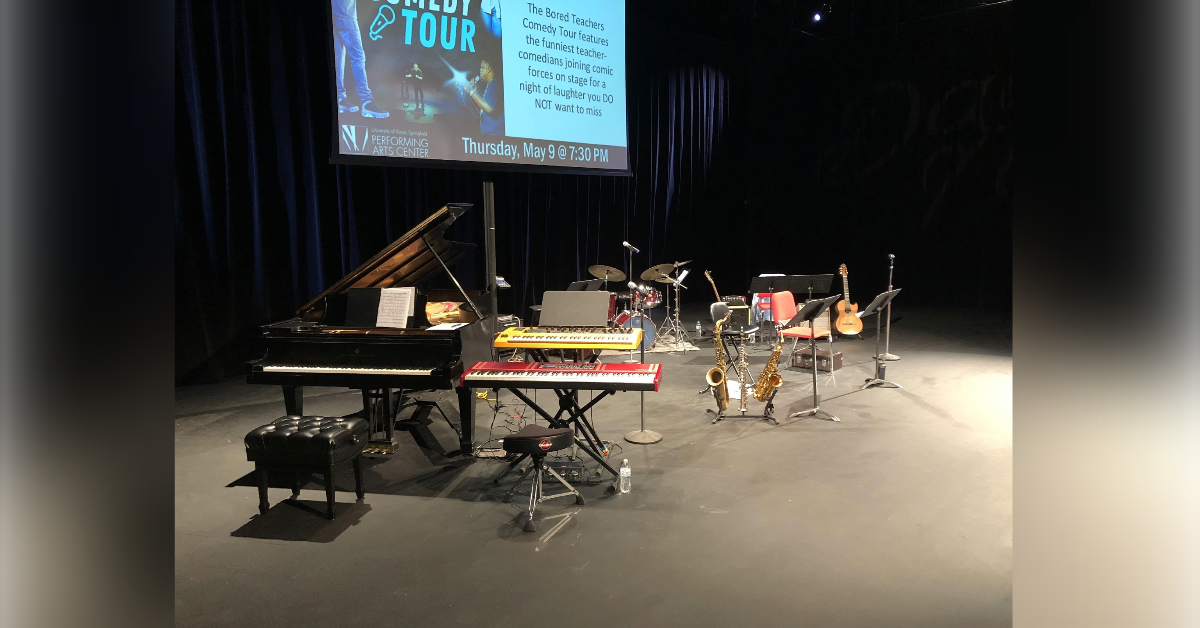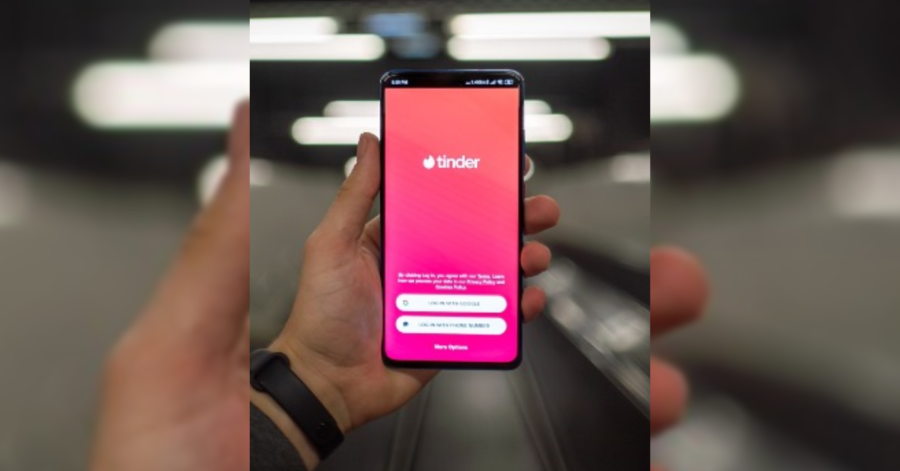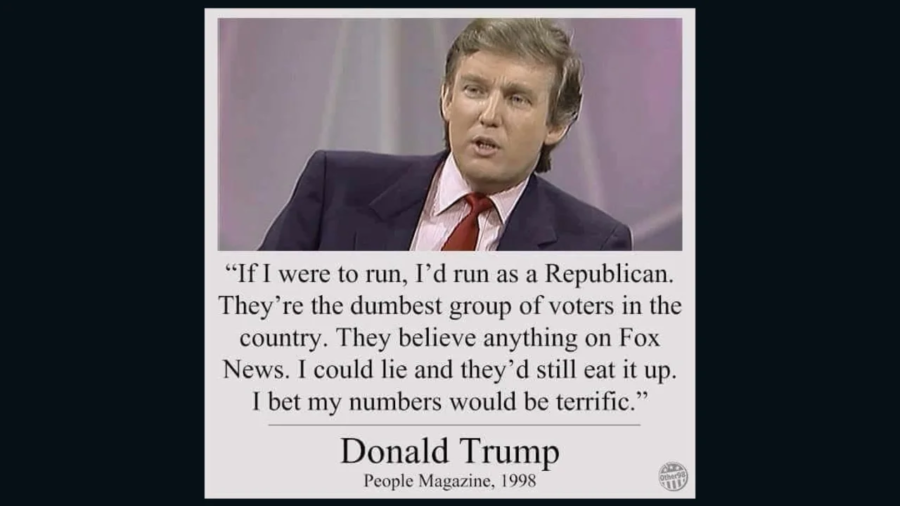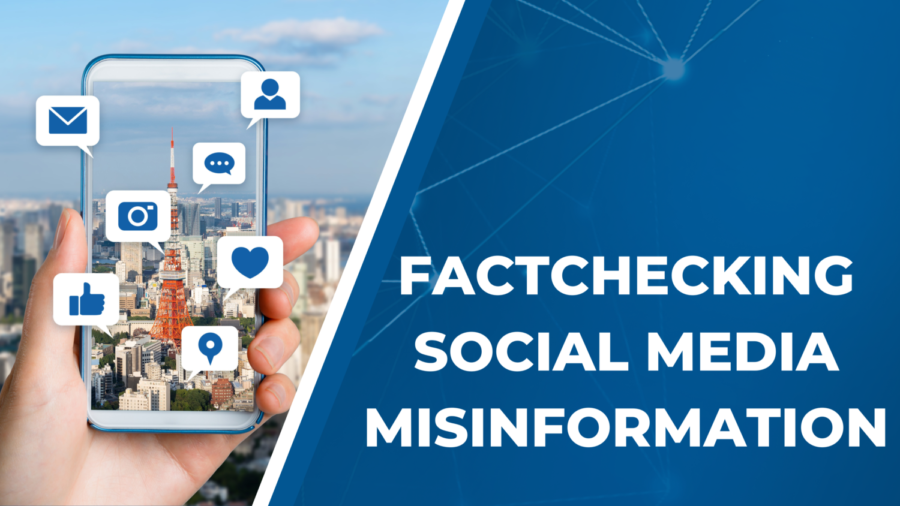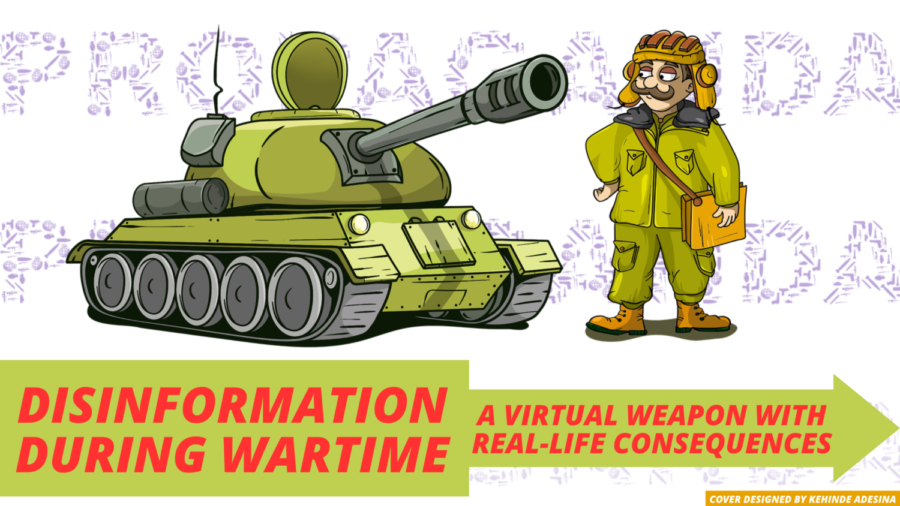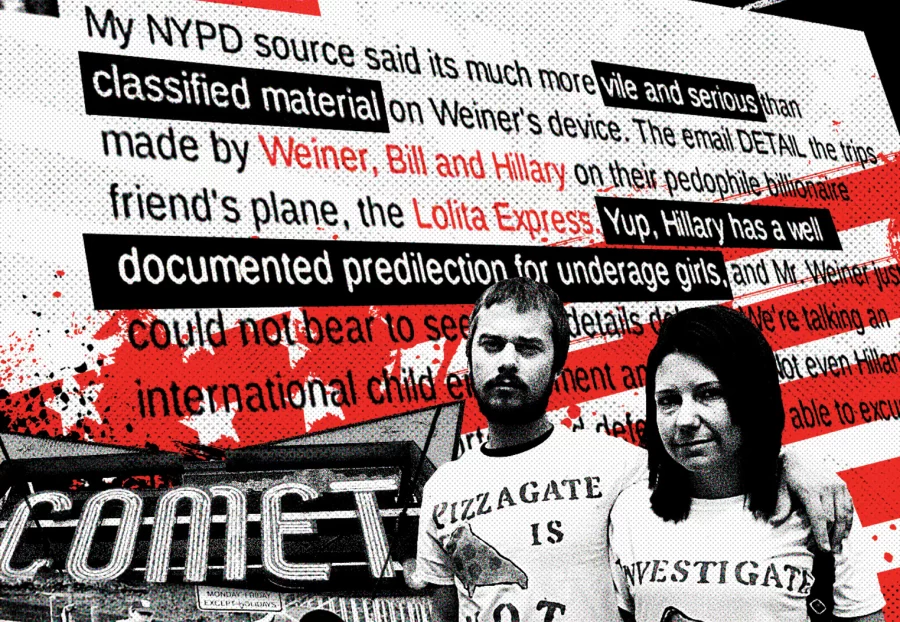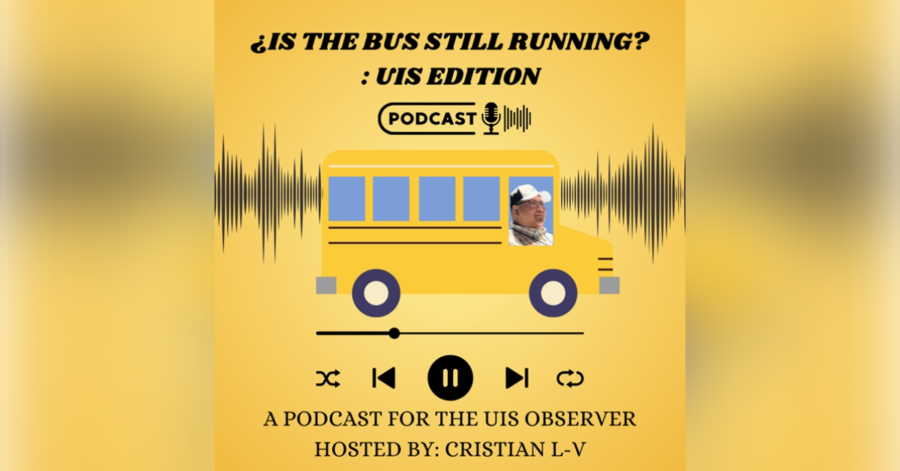Dubbed “Date Night with Jazz,” this was the last of three events to be held at UIS under the Date Night banner, the previous two being Mother Road Bones and Improv. Held on Oct. 5 in the UIS Studio Theatre, this night featured the Groove Merchants, named after the 1967 song of the same name by Jerome Richardson. The group was spearheaded by Manley Mallard, adjunct professor of guitar at UIS and LLCC. Along with his electric and acoustic guitar were five bandmates, two of whom held special meaning as they were Mallard’s son and daughter, Will and Marion Sly Mallard respectively. M. Sly Mallard took to the back playing her huge upright bass with W. Mallard playing center stage with the Trumpet. On M. Sly Mallard’s left was drummer Jaro Howse, native of Springfield and graduate of Southeast High School. To her right was piano player Nick Groesch, using three separate pianos, one grand with the other two electronic. Finally, up front next to W. Mallard, was saxophonist Buddy Rogers who has had over 60 years of experience in the field. Manley Mallard took his place, sandwiched beside two amplifiers, behind W. Mallard and in front of Howse.
Before the doors even opened, a lone repairman was walking in and out of the small theatre. Apparently, there was a malfunction of the air conditioning so when you walked into the theatre, a brisk wave of heat enveloped you like an extra five blankets wrapped ever so tightly against your body. Unfortunately, this issue was never fixed and left the patrons in a constant state of hidden irritation.
It is one of the raw things about live performances – the environment can only be tamed so much. There are no rewind buttons on stage to fix the mistakes like nothing happened. If something goes wrong, everyone will know. Sure, seasoned professionals might be able to gloss over the mistake, but you can never factor in things like the atmosphere, the audience, malfunctions of technology and personal screw-ups. They are all a part of the game, and it was no different for the Groove Merchants.
After a brief introduction from the event’s organizers, Manley Mallard was handed a microphone that only worked when pointed toward the sound booth. It didn’t help that he had a soft voice, making it hard for people in the far back to hear what he said. In fact, it made someone continuously yell out about being unable to hear what was said. It became so loud that after a while the person they were with had to wrap their arm around the other and whatever was said made the person quiet down.
During their opening number, it seemed the band was out of sync with each other, leading to some visible confusion from Rogers, who made a comment to W. Mallard who then passed it to his father. The band started early on another song before M. Mallard was ready and Rogers nearly came in too early during the band’s third number before his trumpet counterpart waved him off. It wasn’t until the fifth or sixth number that they settled in with the grooves. You could tell as members of the band were following the notes with their heads, counting along.
Each song had a similar pattern with the trumpet, saxophone and piano each taking a turn to play a solo section of the piece, followed by a light applause from the crowd. Each gave a unique flavor to the melody as the Bass, Drums, and Guitar kept up the rhythm for the numbers. W. Mallard was working so hard to bust out elephant roars that it led to a hard red on his face. After nearly every solo, he would need to take a sip from one of his three water bottles. By the midway point, they were nearly emptied which led to some flattened notes that either were cleverly mixed in or meant to be a part of the song.
At that midway point, Groesch kept a watchful eye on the time as apparently the event was only meant to last from 6:30 to 8 p.m. So with that in mind they had to skip over a couple of songs to fit the time frame. It should be noted that in the program was a list of possible songs to be played that evening, though it did lead to confusion on this reporter’s end to figure out the order, especially when the skips began to occur, hence the omission of songs so far.
After a hard-hitting song called “Sister Sadie” by Horace Silver, which allowed M. Sly Mallard to jam out with her bass, came the most famous song of the evening, a jazzy version of “Over the Rainbow,” done famously by Judy Garland in The Wizard of Oz. However, those looking for a karaoke version to sing to were sadly lost in the ensuing melody of melancholy. It gave some moments to the original yet fell flat in that memory. This was in no way of fault to the musicians but it felt disconnected from a jazzy standpoint. Perhaps nostalgia forces the mind into a single way of portraying a song, but when someone translates it, the song becomes something new.
Later on, during a vibrant song called “Red Clay” by Freddy Hubbard, Howse ended up with the second biggest flub of the evening. One of the sticks fell from his hand and somehow quietly ended up on the floor next to him. Calling back to seasoned professionals, Howse with a smile grabbed a replacement from a nearby bag and kept playing the tune. It was so seamless it seemed part of the show.
By now the show had reached 8 p.m., and Groesch tried to signal to Manley Mallard that time was up, but that didn’t deter the band from playing a few more tunes for the burning crowd (“Until the Sun Submits” and “Sunny Side of The Street.”) Before the former song, Mallard went off stage to tune his acoustic guitar as kneeling next to the drum kit didn’t help. When it came time to play the number, Mallard’s guitar wasn’t registering on his amp. He looked around, trying to find the problem, only to realize that he hadn’t turned it on.
However, when “Sunny Side” came out, it rocked the place hard. This was by far the best song of the night, giving every single musician a chance to play a solo, including Howse who had several jamming sections throughout the number. It was a fast, upbeat jazzer, and it was a surprise that it didn’t get people out of their seats. As the song faded out, the crowd stood in applause for the musicians, with some moving toward the exits – it was a school night after all. However, Mallard asked the crowd if they wanted one more song and they roared back, mainly due to the amount of people leaving. Some did stick around to hear the “encore,” “Sidewinder” by Lee Morgan. It was an easy, laidback tune that was a nice conclusion for the event. The crowd applauded once again, as most of the members quickly retreated backstage with Mallard stuck up front talking with audience members.
For an event that lasted nearly two hours, it was a fun way to take in some instrumental tunes and switch off the mind – at least outside of the heat issue. But that’s the beauty of live entertainment. It’s all in flux and won’t be the same each time.
Special Thanks to UIS Music for helping to set up this event, and also to my mother who recently celebrated her birthday. Happy Birthday Mom!
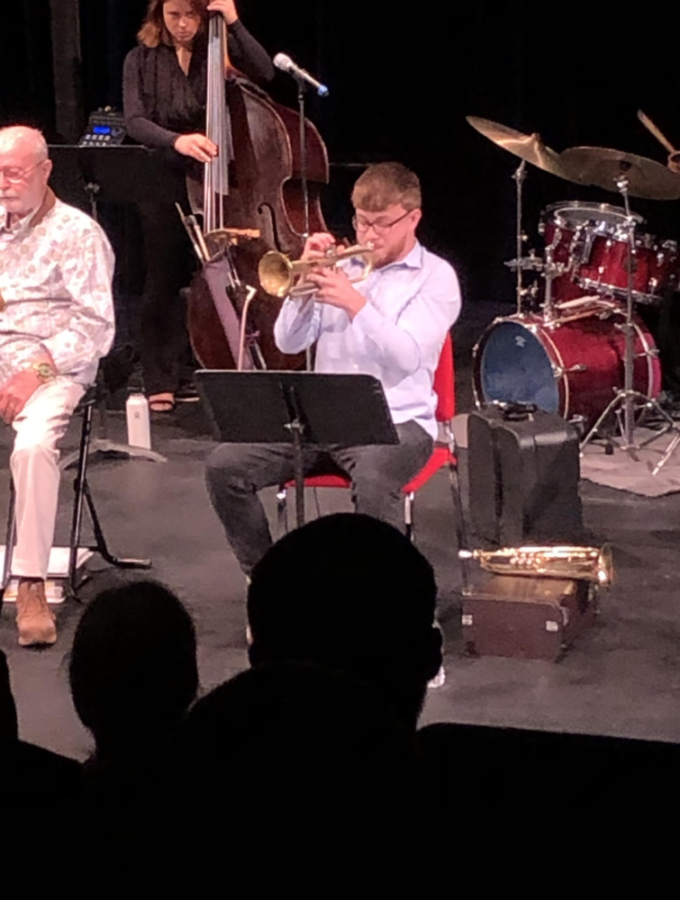
Photographed: Buddy Rogers (Left), Marion Sly Mallard (Back), Will Mallard (Center)
| Photo by Allen Schmitz

